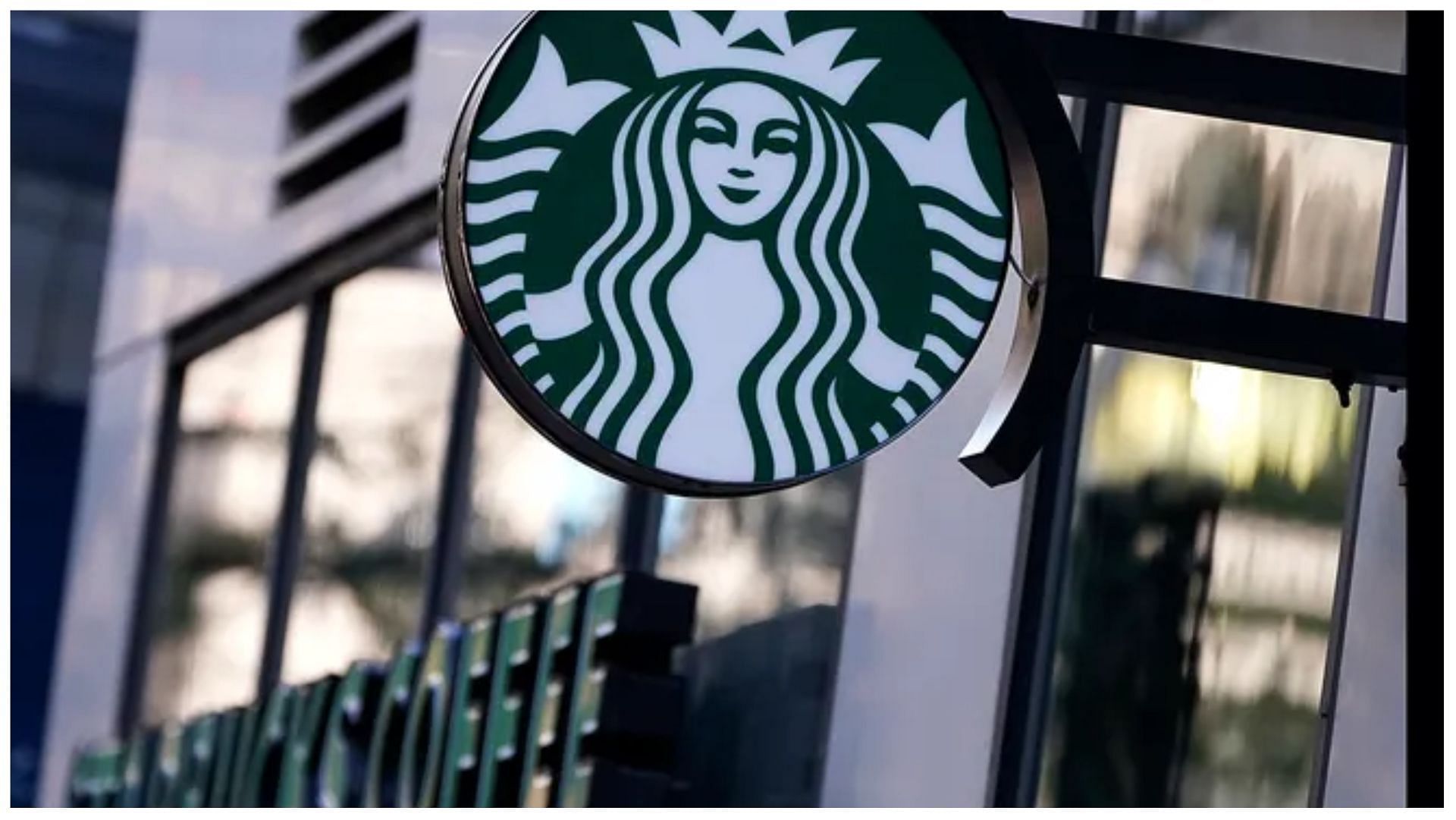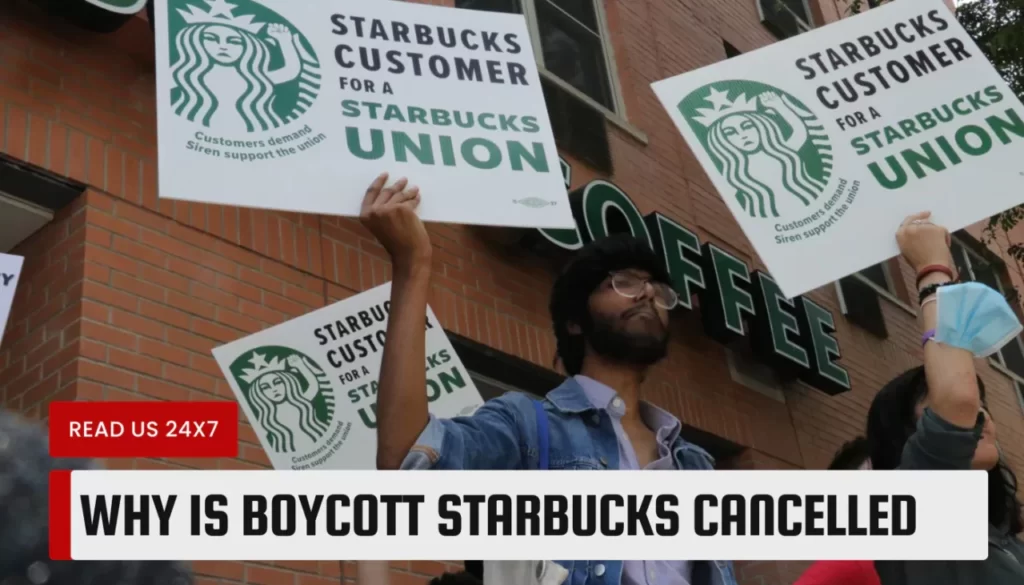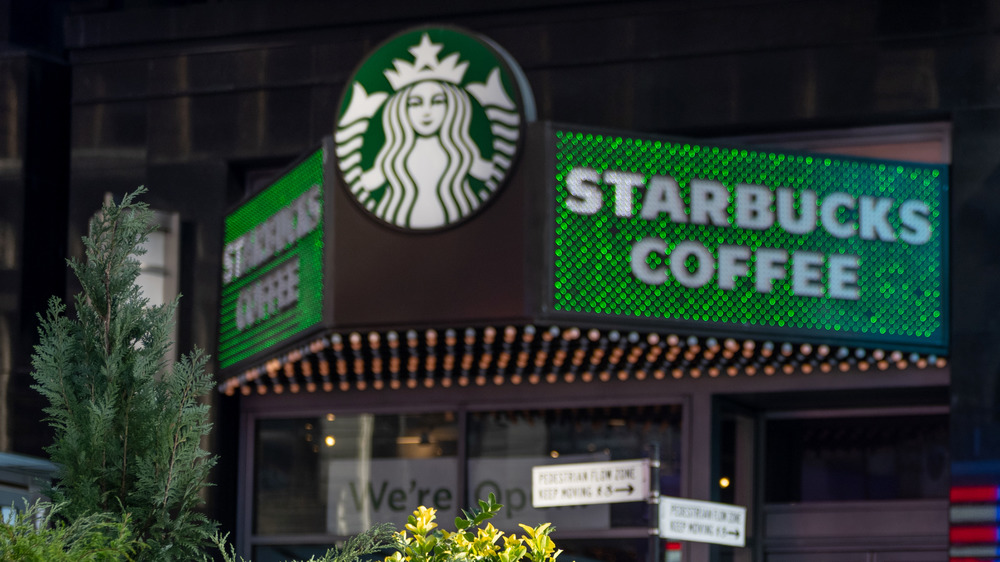Why Did Starbucks Get Cancelled? Unpacking Public Backlash
Have you ever stopped to wonder, really wonder, why a big name like Starbucks, a place many people visit every day, might find itself facing intense public criticism? It's a question that, you know, comes up quite a bit when we talk about companies and their standing with folks. We often hear whispers or see headlines about boycotts or strong disapproval, and it leaves us asking: what happened here, exactly? This isn't just about a single event, it's more about a series of moments that have, shall we say, made people think twice about their coffee choices.
For many of us, Starbucks has been a pretty familiar sight, a spot for a quick coffee, a place to meet up, or even a quiet corner to work. So, when the conversation turns to something like "Why did Starbucks get cancelled?", it can feel a bit surprising, perhaps even confusing. It's not like the doors suddenly closed everywhere, is that right? Instead, it points to something deeper: a shift in public feeling, a change in how people view the company's actions and its place in the world.
This discussion really gets us thinking about what it means for a business to be truly accountable in our modern times. People are, you know, much more aware these days, and they expect companies to do more than just sell products. They want to see businesses act with a certain kind of integrity, and when that seems to waver, well, that's when the questions start. It's about understanding the reasons, the actual causes, behind why public opinion can turn so sharply, and what that tells us about our own values, too it's almost.
Table of Contents
- What "Cancellation" Means for a Company
- The Philadelphia Incident: A Turning Point
- Employee Rights and Union Efforts
- Shifting Social Views and Corporate Stance
- The Loud Voice of Social Media
- Learning from the Public's Reactions
- Frequently Asked Questions
What "Cancellation" Means for a Company
When folks talk about a company like Starbucks getting "cancelled," it's not usually about the business shutting down for good. That's, you know, pretty rare for such a big player. Instead, it typically means a significant drop in public favor, a widespread call from consumers to stop supporting the brand, or a general feeling of disappointment that spreads far and wide. It's like a collective sigh of disapproval, if you will, that can hurt sales and, more importantly, a company's good name.
This sort of public pushback often happens when a company's actions, or sometimes even its silence, clash with the values of a large part of its customer base. People, as a matter of fact, expect businesses to stand for something, to act responsibly, and to treat everyone fairly. When those expectations aren't met, or when a misstep occurs, the public can react very strongly. It's a way for consumers to show their collective power, saying, "Hey, we're watching, and we expect better from you."
It's interesting, really, how the idea of "cancellation" has grown so much in recent times. It points to a world where information moves incredibly fast, and where, you know, individual voices can combine to form a very loud chorus. For a company, this means that every decision, every public statement, and every incident can be put under a very bright spotlight, almost instantly. It changes the game quite a bit for how businesses interact with the people who buy their products, and it means they have to be pretty careful about their steps.
The Philadelphia Incident: A Turning Point
One of the most talked-about events that really put Starbucks under the microscope happened in April of 2018. This was, you know, when two Black men were waiting at a Starbucks in Philadelphia for a business meeting. They hadn't bought anything yet, and an employee, apparently, called the police because they were just sitting there. The men were then arrested for trespassing, which, you know, caused a huge uproar.
The images and videos of the arrest spread like wildfire across the internet, prompting widespread outrage and accusations of racial bias. Many people couldn't understand why these men were treated that way, especially when others, who were not Black, were often allowed to sit without ordering. It sparked a very important conversation about implicit bias and how people of color are treated in public spaces, particularly in places that, you know, claim to be welcoming to everyone.
Starbucks, to their credit, reacted pretty quickly to the situation. They closed thousands of their stores across the United States for an afternoon to conduct racial bias training for their employees. This was, frankly, a massive undertaking, and it showed, in a way, that they recognized the seriousness of the issue. The company's CEO, Kevin Johnson, even met with the two men to apologize personally, and they later reached a settlement that included an educational program for young entrepreneurs.
However, the incident left a lasting mark on the company's reputation. For some, it confirmed long-held suspicions about systemic issues, while for others, it was a wake-up call. It raised questions about whether the company's stated values of inclusivity were truly being lived out in every store, and why, you know, such an event could even happen in the first place. This moment, you see, became a pretty significant example of how a single incident can lead to calls for a company to be held accountable, and how it can, in fact, shape public perception for years to come.
Employee Rights and Union Efforts
Another area where Starbucks has faced a fair bit of public scrutiny, and frankly, some calls for boycotts, involves its relationship with its own workers, especially when it comes to unionizing. In recent years, there's been a growing movement among Starbucks employees to form unions, seeking better pay, benefits, and working conditions. This has, you know, led to some pretty intense situations between the company and its staff.
Workers at many stores across the country have voted to unionize, expressing concerns about staffing levels, unpredictable schedules, and what they feel are inadequate wages. These efforts have, apparently, been met with significant resistance from Starbucks management. Accusations of "union-busting" tactics have surfaced, with some employees claiming that the company has tried to discourage or even prevent union formation through various means. This includes, for example, allegations of closing stores where union activity is high, or, you know, disciplining pro-union workers.
The National Labor Relations Board (NLRB) has, in fact, filed numerous complaints against Starbucks, alleging violations of labor law. These complaints often point to actions that, some would say, interfere with workers' rights to organize. The public, especially those who support labor rights, has been watching these developments very closely. For many, a company's treatment of its own employees is a pretty good indicator of its overall values, and so, you know, this has definitely contributed to some negative feelings.
The ongoing struggle between Starbucks and its unionizing workers continues to be a hot topic. It sparks conversations about fair labor practices, corporate responsibility, and the power dynamics between large corporations and their individual employees. People are, quite simply, asking why a company that projects such a welcoming image might, seemingly, be so resistant to its own staff having a collective voice. This situation, in a way, shows how deeply connected a company's public image is to its internal operations and how it treats the people who, you know, make it run every day.
Shifting Social Views and Corporate Stance
Beyond specific incidents, Starbucks has, at times, found itself in the middle of broader cultural debates, which can also lead to public dissatisfaction. As society's views on various social and political issues shift, people often look to corporations to take a stand, or at least to act in ways that align with evolving public morality. This can be, you know, a bit of a tightrope walk for any large company, as taking a stance on one issue might alienate another segment of its customers.
For instance, Starbucks has been seen by some as a company that leans into progressive social causes, which has, you know, drawn praise from some groups but criticism from others. Sometimes, the perception of being "too woke" can lead to calls for boycotts from those who disagree with certain social positions. On the other hand, if the company is seen as not doing enough, or not acting quickly enough on a particular issue, it can face backlash from those who expect more corporate activism. It's a pretty delicate balance, isn't it?
There have been moments where the company's actions or statements on things like environmental sustainability, diversity initiatives, or even its presence in certain international markets, have drawn fire. For example, some have questioned the environmental impact of its disposable cups, while others have debated its role in various global economies. These discussions, you know, often come back to the core question of what responsibilities a global brand has beyond simply selling its products.
The public's expectations for companies have really changed over time. It's not just about the coffee anymore; it's about the company's entire footprint and its values. So, when people ask "Why did Starbucks get cancelled?", part of the answer often lies in these broader shifts in social expectations and how well, or how poorly, a company manages to align itself with the diverse and sometimes conflicting values of its very large customer base. It's a constant negotiation, you know, between what a brand says it stands for and how its actions are actually perceived by a very watchful public.
The Loud Voice of Social Media
It's pretty clear that social media plays a massive part in how quickly and widely news, especially negative news, about a company can spread. For a brand like Starbucks, with its huge global presence, a single incident or a perceived misstep can, you know, go viral in a matter of minutes. This means that public opinion can form and shift at an incredibly fast pace, much faster than in years past. It's a powerful tool, both for connecting with customers and for feeling the heat when things go wrong.
Platforms like X (formerly Twitter), Instagram, and TikTok allow individuals to share their experiences, voice their opinions, and organize collective action, such as boycotts, with unprecedented ease. If someone has a bad experience at a Starbucks, or if news breaks about a controversial company policy, that information can, apparently, reach millions of people very, very quickly. This creates a kind of public forum where every action is scrutinized, and where, you know, people can demand immediate responses.
The sheer volume of conversations and the immediate feedback loop on social media mean that companies are always under a kind of microscope. The "why" behind public anger often gets amplified through hashtags and trending topics, making it impossible for a brand to ignore. This constant, open dialogue means that a company's reputation is always, you know, in flux, shaped by every tweet, every post, and every shared story. It’s a pretty intense environment, frankly, for any business to operate within.
So, when we consider "Why did Starbucks get cancelled?", a big part of the explanation has to involve the way social media acts as both a megaphone and a mirror for public sentiment. It makes consumer anger more visible and more organized, pushing companies to address issues that, perhaps, they might have handled more quietly in the past. It shows, in a way, just how much power the collective voice of the public now holds, and how quickly that power can be brought to bear on even the biggest of brands.
Learning from the Public's Reactions
Looking at all these instances, from the Philadelphia incident to the ongoing union efforts, and even the broader social debates, there's a pretty clear lesson to be learned. The public, it seems, expects a lot more from companies these days than just good products or services. They want to see businesses act with a sense of purpose, with fairness, and with a real connection to the values that matter to people. It's not just about the coffee, you know, it's about the whole picture.
When people ask "Why did Starbucks get cancelled?", they're really asking about the reasons behind the public's disappointment, the moments when trust might have been shaken. It's about understanding that a company's actions, whether intentional or not, can have a profound impact on how it's viewed by the very people who keep it going. This means that transparency, accountability, and a genuine effort to address concerns are, you know, more important than ever before.
For any business, big or small, understanding these public reactions is pretty vital. It's about listening to the feedback, even when it's critical, and trying to figure out the "why" behind it. What is it that truly upset people? What values were perceived to be violated? This kind of self-reflection can, in fact, help companies adapt and grow, making sure they're not just selling things, but also, you know, building a positive relationship with the communities they serve. It’s a continuous conversation, really, and one that shapes the future of how businesses operate.
Learn more about corporate responsibility on our site. And to understand more about how public opinion forms, you can link to this page the power of collective voice.
Frequently Asked Questions
Why do people boycott Starbucks?
People choose to boycott Starbucks for a bunch of different reasons, actually. Sometimes it's because of specific incidents, like the racial bias event in Philadelphia that made many people quite upset. Other times, it's about the company's stance on worker rights, especially with the ongoing unionization efforts, which some see as unfair. Then there are also, you know, broader disagreements with their social or political positions, or concerns about their environmental practices. It's often a mix of things that, you know, adds up for individuals.
What does "cancelled" mean in the context of a company?
When a company gets "cancelled," it doesn't usually mean it's gone out of business entirely. Instead, it refers to a widespread public withdrawal of support, often involving calls for boycotts and a significant hit to its public image. It means that, you know, a lot of people are expressing strong disapproval and encouraging others to stop buying from or engaging with the brand. It's a way for the public to, in a way, show their displeasure and push for change.
How does social media impact a company's reputation during controversies?
Social media has a pretty huge impact, honestly. It allows news and opinions to spread incredibly fast, so a single incident can go viral in minutes, reaching millions of people. This means that public backlash can form very quickly, and companies are forced to respond almost immediately. It's a constant, public forum where every action is scrutinized, and where, you know, consumers can easily organize and amplify their voices, making it much harder for companies to ignore criticism.

Why is Starbucks closing in 16 locations? Locations explored as coffee

Starbucks Boycott 2024 What Happened - Shaun Katinka

The Real Reason Starbucks Just Canceled Its Happy Hour